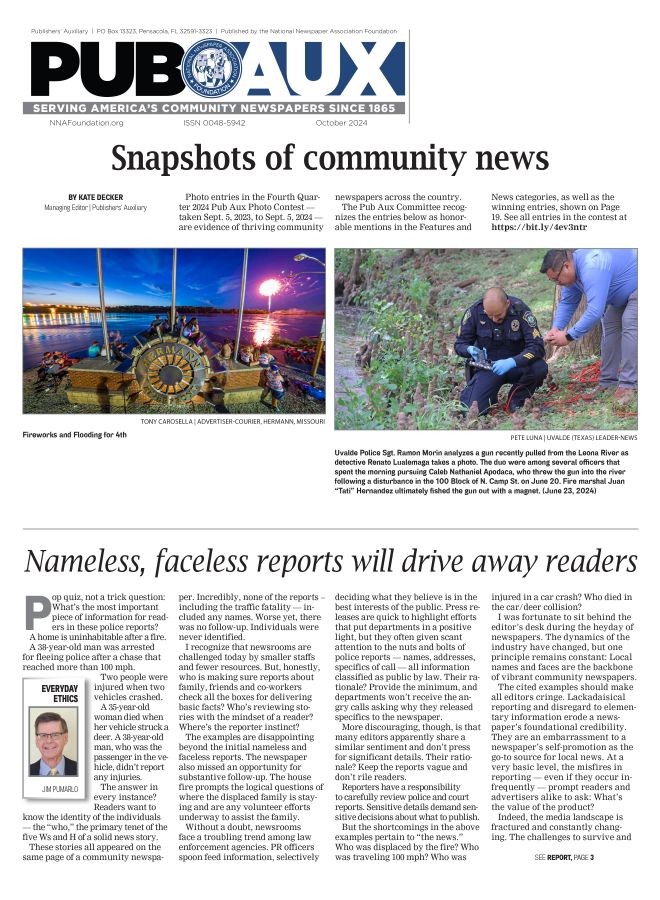Indiana fallout poisons well for religious freedom
Apr 1, 2015
By Charles C. Haynes
Nationwide outrage over Indiana's Religious Freedom Restoration Act (RFRA) — signed into law by Gov. Mike Pence on March 26 — is a remarkable sign of just how far the country has come on the issue of civil rights for lesbian, gay, bisexual and transgender (LGBT) Americans.
Everyone from basketball luminary Charles Barkley to Apple CEO Tim Cook have sounded an alarm about a law that critics charge will promote discrimination against LGBT people.
Gov. Pence is now scrambling to contain the damage as the "boycott Indiana" movement goes viral. Absent repeal or a major fix, it's entirely possible that the Final Four will be playing in Indianapolis this week for the final time — a scary prospect for basketball-crazed Hoosiers.
At a press conference this week, Pence kept repeating the mantra “RFRA is not a license to discriminate” — and announced that he has asked the legislature to amend the law to make that clear.
The governor blamed opponents of the law and inaccurate media coverage for creating the “misperception” that Indiana’s RFRA would permit discrimination against LGBT people. While it’s certainly true that heated rhetoric describing the law as “anti-gay” and alarmist media stories contributed to the backlash against the law, that’s not how Indiana’s RFRA got a bad rap in the first place.
In an hour-long exchange with reporters, Pence refused to acknowledge that many supporters of the law — including leaders of conservative Christian groups standing by the governor’s side when he signed the bill into law — pushed for RFRA precisely because they hope it will permit business owners to deny services and benefits to same-sex couples on religious grounds.
As a supporter of both equality and religious freedom, I am torn between celebrating the outrage at the specter of discrimination and mourning the damage done to the cause of religious freedom.
The Indiana debate — much like the RFRA fight in Arizona two years ago and current debates in Georgia and Arkansas — has been so misleading, vindictive and divisive that any rational discussion of if (and how) we can uphold both nondiscrimination and religious freedom in Indiana or anywhere else may no longer be possible.
Here’s the tragic irony: As the governor belatedly admitted at his press conference, the Indiana RFRA is very unlikely to protect religious claims in the way many proponents promise — and thus equally unlikely to bring about the wave of anti-gay discrimination that many opponents fear.
For a fuller understanding of just why RFRA is not (or should not be) the villain of this piece, we need a little history.
Let's start with the 1990 U.S. Supreme Court decision — Employment Division v. Smith — that sharply curtailed the application of the “compelling state interest” test long used by courts to determine when government laws or regulations substantially burden the free exercise of religion.
Under the pre-Smith regime, many religious claims for exemption from laws that substantially burdened the practice of faith were accommodated — unless the government could demonstrate a compelling state interest in refusing accommodation and no less restrictive way of accomplishing that interest.
In the three years following Smith, more than 50 reported cases were decided against religious groups and individuals. As a result, a broad coalition of groups from across the political and religious spectrum worked to pass the Religious Freedom Restoration Act (RFRA), signed into law by President Bill Clinton in 1993. The intent was to "restore" pre-Smith protection for religious freedom by requiring the government to demonstrate a compelling state interest for denying a religious accommodation or exemption.
Then in 1997, the Supreme Court struck down RFRA as applied to the states, although, as we saw in the Hobby Lobby decision last year, it still applies to the federal government. Since that time, 19 states — now 20 with the addition of Indiana — have passed state RFRAs. Courts in at least ten other states have provided the same level of protection through religious freedom provisions of state constitutions.
Indiana's RFRA appears to go beyond similar laws in other states by, for example, explicitly extending protection to corporations (and not just "closely-held corporations" as in the Hobby Lobby case).
But many legal scholars agree that business owners cannot use RFRA — in Indiana or anywhere else — to discriminate against LGBT people. As Indiana University law professor Daniel Conkle (a supporter of LGBT rights who testified in favor of the Indiana RFRA) has pointed out, that there are no RFRA cases where the court has upheld a religious claim in a discrimination case.
"The 'license-to-discriminate' argument that seems to have this relentless repetition," Conkle told the Associated Press, "is just legally wrong."
Properly understood and applied, RFRAs are an important protection for free exercise of religion — especially for members of minority religious groups who often need exemptions from government actions that burden the practice of their faith.
Enacting RFRAs to fight the effects of same-sex marriage not only gives RFRA a bad name, it poisons the well for religious freedom.
Instead of using RFRA as a weapon in the culture wars, religious people seeking religious exemptions or accommodations need to sit down with the other side and seek common ground on how to both uphold LGBT civil rights and protect religious freedom. If Utah can do it, so can Indiana.
I predict the quick fix to RFRA proposed by Gov. Pence will not be sufficient to undo the damage caused by this controversy.
To send a clear, unmistakable message that Indiana does not discriminate, Indiana lawmakers must pass — and the governor must sign — a statewide law protecting LGBT people from discrimination.
Once discrimination is off the table, RFRA opponents — many of whom were RFRA proponents 20 years ago — might once again see the merit in legislation that guards the free exercise of religion.
If lawmakers don't act quickly to undo the damage, the real fallout from the Indiana debate will be "religious freedom = bigotry."
And that would be a disaster for the future of religious freedom in America.
Charles C. Haynes is director of the Religious Freedom Center of the Newseum Institute, 555 Pennsylvania Ave., N.W., Washington, DC 20001. Web: www.religiousfreedomcenter.org Email: chaynes@newseum.org







